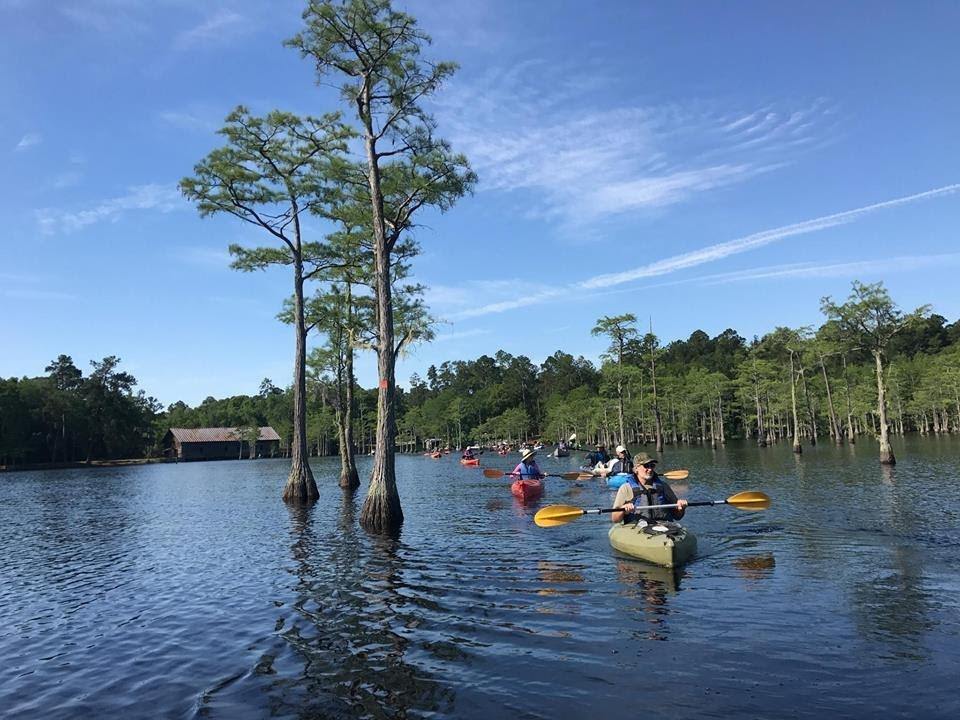
Caption
Kayackers enjoy a trip on the Ogeechee River. In July 2022, the closing of a textile plant connected to a 2011 fish kill was announced.
Credit: File photo

Kayackers enjoy a trip on the Ogeechee River. In July 2022, the closing of a textile plant connected to a 2011 fish kill was announced.
Mary Landers, The Current
A Screven County textile factory that was at the center of an investigation into a massive fish kill on the Ogeechee River in 2011 is closing.
Spartanburg, S.C.-based Milliken & Company on Wednesday announced the closure of the Longleaf plant, formerly known as King America Finishing. Milliken purchased the plant from King America Finishing in 2014.
“Milliken will phase out operations at the Longleaf Plant, located in Sylvania, Georgia, and transition all production lines to the expanded and modernized Magnolia Plant, located in Blacksburg, South Carolina,” a press release announced. The company did not give a date for the plant closure, but indicated its 260 employees would be offered positions at other Milliken sites.
Milliken purchased the plant about three years after the fish kill, when an estimated 38,000 fish died in the free-flowing blackwater river days before Memorial Day weekend in 2011. Investigators found dead fish beginning about 50 yards below the company’s outfall pipe. State regulators eventually determined that King America had been operating for 5 years without a permit for its fire retardant line.
As part of an agreement with regulators, the company funded $1.3 million in environmental projects, including a study of the river by Georgia Southern University. The state Environmental Protection Division then issued what it called the strictest permit in state history. That permit was further strengthened by the Ogeechee Riverkeeper, which sued King America under provisions of the Clean Water Act and eventually settled for $2.5 million plus the promise of more transparency for the public about water quality monitoring.
The textile mill prepared cotton and synthetic/cotton blends with methods including bleaching, dyeing, and flame-retardant treatment. Despite renovations and capital improvements, the plant struggled to comply with its permit. The U.S. Environmental Protection Agency reports the facility, with permission to discharge up to 2.77 million gallons per day into the river, was out of compliance with the Clean Water Act 11 of the last 12 quarters.
“Milliken Longleaf is the only large-scale permitted industrial polluter on the Ogeechee River,” said Ogeechee Riverkeeper Damon Mullis. “Our organization’s mission is to preserve, protect and improve the water quality of the Ogeechee River. It is with mixed emotions that we receive this news, recognizing the long term benefits to the river while acknowledging the social and economic impacts to the community. That said, this removes the primary source of industrial effluent into our river.”
While the closure of the Screven County facility is a positive step for the health of the river, it comes just as another major industry, Hyundai Motors, has announced plans to build a Kia EV plant at the Bryan County megasite. That’s less than 3 miles from the Ogeechee River.
“Interesting times,” Mullis said. “We’ve got one dragon slayed and the new one’s coming. But I think (Kia) is going to be less impactful as far as toxicity.”
In the meantime, the riverkeeper plans to be extra vigilant as the textile plant winds down it operations.
“I do know that while a facility like this is shutting down, they can actually have more permit issues, because they’re designed to run at a certain level,” Mullis said. “Between now and the time they actually close can be sensitive, so we’re going to step up our monitoring efforts.”
This story comes to GPB through a reporting partnership with The Current, an independent, in-depth and investigative journalism website for Coastal Georgia.